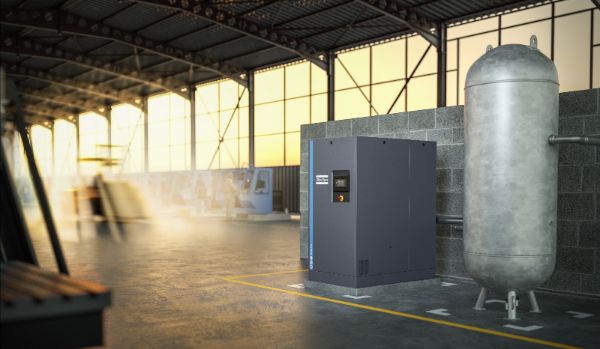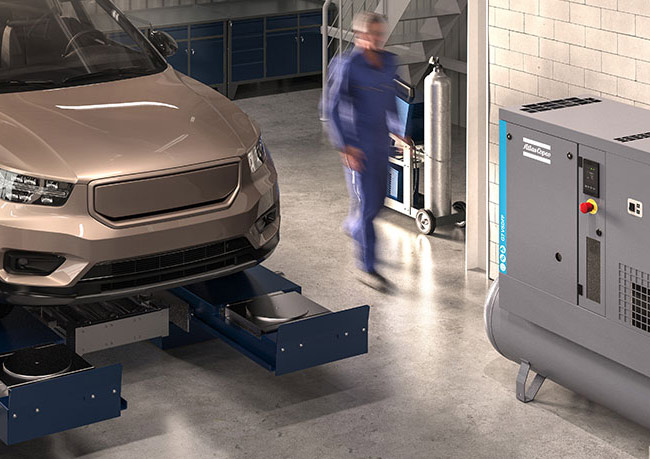NEWS: Tips and Tricks on How to Improve Your Compressed Air Efficiency
Compressed air technology provides a host of invaluable roles when tackling countless commercial and industrial applications.
While these units have certainly come a long way in recent times in terms of reliability, it is an unfortunate fact that an inefficient air compressor can cost unnecessary money. This is why improving the energy efficiency of a compressed air system is vital. What steps can be taken and when might it be more prudent to seek an upgrade?
Addressing Short-Term Demands
There can be times when a compressor will be used to provide short-term bursts of air (such as within a garage or shot blasting). In such instances, it may be better to install a receiver or a separate storage tank. These reservoirs can be used to address on-demand requirements without placing the compressor itself under a greater amount of strain.

Cooling the Intake Air Feed
Air expands when it becomes hotter. In turn, it will become more difficult to compress. It is much better to cool the air before it enters the intake. As the air itself condenses, the compression process will become vastly enhanced. If you happen to be working within extremely warm environments, this step can improve the overall efficiency of the unit.
Controlling Humidity
Humidity will also have an impact on the efficiency of a compressor. Moist air that is allowed to enter into a system will deposit small droplets of water. This water can lead to the accumulation of rust. Oxidation can cause an undue amount of wear and tear; negatively impacting the performance of the entire system. This is why knowing how to check air compressor efficiency will often involve measuring the amount of humidity in the air. Hand-held hygrometers may be used to accomplish this task.
Consider the Presence of Multiple Compressors
In terms of air compressor efficiency, bigger is not always better. Larger units may consume more electricity even though they could be operating at only partial power. In such instances, a series of compressors or the use of variable speed technology may represent a much better option.
Addressing Wasted Heat
Compressors have been known to generate a significant amount of wasted heat via the principle of thermal conductivity. As opposed to allowing this heat to dissipate, it can be recovered to address other requirements such as boiling water or hot exhaust to warehouse facilities. It has been shown that recovery hardware can save up to 90 per cent of the heat that would otherwise be lost to the environment.
Assess the Discrete Needs of the System
There are undoubtedly times that the wrong compressor is chosen to accommodate industrial or commercial tasks. This is why an on-site assessment and data logging are crucial in order to determine if any changes are required. Here are some questions which should be addressed:
- Is the overall load profile associated with large demand fluctuations?
- Is the system producing air that is not being used?
- What is the optimal operational pressure for the unit?
- Does the supply equal the demand (and vice versa)?

The Power of an Upgrade
Maintenance is key when improving the energy efficiency of a compressed air system. This proactive stance can help to rectify smaller issues before they accumulate into major problems that require a great deal of time and money to address. However, there may also be instances when an upgrade is more logical when compared to spending money on a unit that is no longer able to sufficiently address your demands.
Here at ACL Engineering, we can offer a free air check to inspect your current compressed air system and offer our advice on how it could be improved. To speak to a member of our team and discuss your needs, give us a call today on 01923 249444.

Speak to our team about air compressor efficiency







